Biaxin, also known by its generic name clarithromycin, is a prescription medication used in the treatment of various bacterial infections. It belongs to the macrolide antibiotic class and works by stopping the growth of bacteria. Biaxin is primarily used to treat respiratory tract infections such as pneumonia, sinusitis, and bronchitis. It is also effective against skin and soft tissue infections, as well as certain types of stomach ulcers caused by a bacteria called Helicobacter pylori.
Important Precautions
There are several important precautions to consider before taking Biaxin. It is essential to inform your healthcare provider if you have any allergies to clarithromycin or other macrolide antibiotics. Additionally, let your doctor know about any medical conditions you have, especially kidney or liver disease. Biaxin may not be suitable for individuals with a history of heart rhythm problems or myasthenia gravis, a neuromuscular disorder. It is crucial to disclose all medications you are currently taking, including prescription drugs, over-the-counter medicines, and herbal supplements, as some may interact negatively with Biaxin. Pregnant or breastfeeding women should consult their doctor before using this medication.
Biaxin and Your Health
Like any medication, Biaxin may cause certain side effects. Common side effects include nausea, vomiting, diarrhea, and abdominal pain. These symptoms are usually mild and subside on their own. However, if they persist or worsen, it is advisable to contact your doctor. More severe but rare side effects may occur, such as liver problems, allergic reactions, or a severe skin condition known as Stevens-Johnson syndrome. It is crucial to seek immediate medical attention if you experience any of these serious side effects. Your healthcare provider can provide more detailed information about the potential risks and benefits of taking Biaxin.
How to Use
Biaxin should be taken exactly as prescribed by your doctor. The dosage and duration of treatment will depend on the type and severity of the infection. It is typically taken orally, with or without food. Swallow the tablet whole without crushing or chewing it. If you miss a dose, take it as soon as you remember. However, if it is close to the time for your next dose, skip the missed dose and resume your regular dosing schedule. Do not double the dose to catch up. In case of an overdose, contact emergency services immediately or seek medical attention. Symptoms of an overdose may include severe stomach pain, nausea, vomiting, diarrhea, and an irregular heartbeat.
Understanding Drug Interactions
Biaxin can interact with several medications, altering their effectiveness or increasing the risk of side effects. It is essential to inform your doctor about all the medications you are currently taking. Antacids containing aluminum or magnesium, as well as certain drugs used to treat heart rhythm problems or psychological disorders, may interact with Biaxin. Additionally, it is necessary to avoid the concomitant use of Biaxin with some cholesterol-lowering medications, certain asthma medications, and certain anticoagulants, among others. Your healthcare provider can provide a comprehensive list of drugs that may interact with Biaxin, and they will monitor your progress closely throughout the treatment to ensure its efficacy and safety.
Common Questions
-
Q: Can Biaxin be used to treat viral infections?
A: No, Biaxin is an antibiotic and is only effective against bacterial infections. It is not effective against viral infections such as the common cold or flu. -
Q: Can I drink alcohol while taking Biaxin?
A: It is generally recommended to avoid alcohol while taking Biaxin. Alcohol consumption may increase the risk of certain side effects and may also affect the effectiveness of the medication. -
Q: How long does it take for Biaxin to start working?
A: The onset of action of Biaxin may vary depending on the infection being treated. In general, improvement in symptoms is often seen within a few days of starting treatment. However, it is important to complete the full course of medication as prescribed by your doctor to ensure the infection is completely eradicated. -
Q: Can Biaxin cause birth control pills to be less effective?
A: Biaxin has the potential to interact with certain birth control pills, which may make them less effective in preventing pregnancy. It is advisable to use an additional form of contraception while taking Biaxin and for a few weeks after completing the treatment. Consult your doctor for specific recommendations. -
Q: Can I stop taking Biaxin once my symptoms improve?
A: It is important to complete the full course of Biaxin as prescribed, even if your symptoms have improved or resolved. Stopping the medication prematurely may allow remaining bacteria to survive, leading to a relapse of the infection.

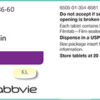
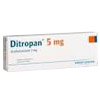
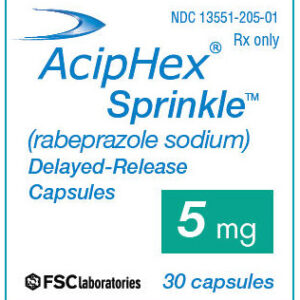
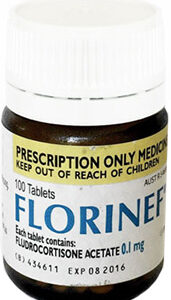
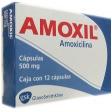
Reviews
There are no reviews yet.